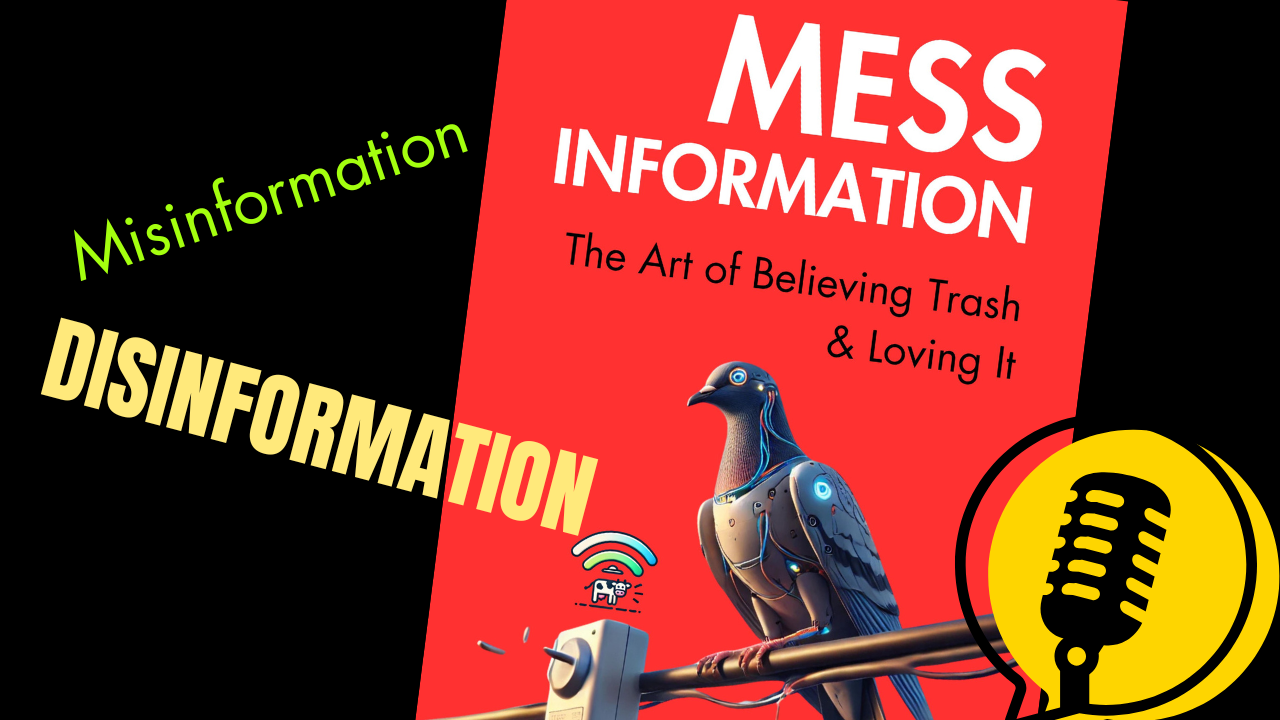Distracted. That’s the state of the world today. We all crave distraction—endless distraction, disguised as entertainment and news. We’re hooked on dopamine hits, scrolling, swiping, and clicking, trapped in a never-ending loop of novelty. The deeper the void, the louder the demand for more. So, what do the creators of this chaos do? They give us more, louder and louder.
Aldous Huxley’s Brave New World showed us that distraction isn’t just about entertainment; it’s a control mechanism. Soma, the fictional drug, didn’t need to be forced on anyone. People chose it willingly to escape discomfort and complexity. They didn’t need chains; their desire for pleasure and avoidance of pain kept them compliant.
Today, we’re living in a similar reality. We don’t need soma; we have an infinite pool of content, viral trends, and distractions galore. We’ve traded curiosity for convenience, reflection for reaction, and the quest for knowledge for the chase of likes. This promise of constant connection has left many feeling disconnected—from themselves, from others, and from the world.
The Cost of Distraction
At first, eternal distraction seems harmless. Just a little fun after a long day, right? But this relentless pursuit of stimulation comes with a hefty price. It clouds our judgment, dulls our critical thinking, and makes us easy prey for manipulation. We end up in a society that shuns complexity, loses nuance, and embraces polarization.
Huxley’s warning wasn’t just about distraction; it was about what we sacrifice when we give in to it. When people willingly trade depth for dopamine, the very foundations of truth, freedom, and human connection start to crumble.
What a Brave New World Might Look Like
Picture a future where misinformation reigns unchecked. In this world:
Truth is irrelevant. With endless narratives fighting for attention, people stop seeking truth. They settle for whatever fits their biases or entertains them the most.
Critical thinking is obsolete. Overwhelmed with information, individuals cling to simplistic ideologies, surrendering their autonomy to algorithms and influencers who promise clarity amid chaos.
Human connection is commodified. Relationships become mere interactions on screens. Genuine empathy fades, replaced by performative outrage or fleeting virtual validation.
Power is concentrated. Those who control information and attention hold immense sway, shaping global perceptions and decisions.
This isn’t a world of oppression; it’s a world of apathy. People aren’t forced to comply—they’re too distracted to resist.
A Call to Awareness
But this future isn’t set in stone. Huxley’s Brave New World serves as a cautionary tale, not a prophecy. It shows us that while distraction can be tempting, awareness is our antidote. By reclaiming our attention, nurturing curiosity, and choosing depth over dopamine, we can resist the lure of eternal distraction.
We have the tools to break free from the mess. Science, critical thinking, philosophy, and even humor can lead us to clarity. Technology, when guided by ethics, can uplift rather than manipulate. Most importantly, individuals have the power to choose—to seek knowledge, to question, and to connect meaningfully.
A Hopeful Vision
The brave new world described here is not predetermined. The same forces driving an age of mess-information can also empower, educate, and inspire. The real question is whether we’ll let distractions consume us or choose to rise above them.
Ultimately, the fight against disinformation isn’t just about resisting manipulation; it’s about rediscovering our humanity. It’s about embracing complexity, finding joy in understanding, and choosing connection over isolation.
Let’s not settle for a world of eternal distraction in which ideology replaces critical thinking. Instead, choose knowledge over distraction so that we build a world filled with purpose, clarity, and meaning. The choice is ours.
Interested? Want to know more? Read: The Age of Mess-Information: How the Attention Economy Got Us into a Mess
